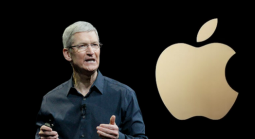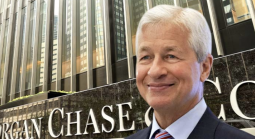Cracking Down on Tax Evaders: Feds Cracking Down Hard

(Time Magazine) - The global sport of tax evasion has its moments of intrigue, but it's usually well worth playing, as trillions of dollars in assets find their way to Caribbean shores and Alpine enclaves, safely hidden from the world's tax authorities by no-tell bankers. Or so many ultra-rich Americans have long assumed.
But that may be changing. Bradley Birkenfeld, a former UBS private banker, now sits in his brother's house in Boston, wearing an electronic monitoring device and waiting to be sentenced for his role in helping one client, California real estate billionaire Igor Olenicoff, hide some $200 million in assets, skirting more than $7 million in income taxes. UBS has shuttered its cross-border banking business for U.S. customers and has advised bankers who worked in that division not to travel to America for one important reason: they might be arrested.
Birkenfeld is caught up in the latest in a series of efforts by the feds to crack down on wealthy tax cheats and the bankers, accountants and lawyers who help - and in fact, often convince - them to set up offshore accounts not properly reported to the IRS. (It is legal to have an offshore account; hiding it is the no-no.) On Thursday the Senate's Permanent Subcommittee on Investigations will hold a hearing on how banks in offshore tax havens may be helping Americans evade taxes. The hearing adds momentum to efforts already under way at the IRS and Department of Justice, and by authorities in a number of other countries, including France, Germany and the U.K.
The feds are squeezing UBS for the names of other clients. More Swiss and Liechtenstein banks might be next in line for a federal look-see, their vaunted secrecy laws notwithstanding. In light of Birkenfeld's arrest, private bankers from Zurich and Geneva to the Isle of Jersey off the coast of England are assuming a bunker mentality. One private banker in London, caught up on events at UBS, responded, "My God, we're doomed." Says Reuven Avi-Yonah, a professor and director of the international tax program at University of Michigan Law School: "The whole world of private banking is full of this stuff. In some ways, UBS has been singled out unfairly."
The feds are disrupting one of the great niche businesses. As a private banker at UBS, Birkenfeld traveled from his home in Switzerland to the U.S. to court ultra-wealthy American clients at tennis tournaments and art fairs. He would explain, among other things, how to buy jewels and artwork using funds from their secret Swiss bank accounts while they were overseas. Once, at the request of a client, he bought diamonds with money from an offshore account and smuggled them into the States in a toothpaste tube.
Starting in 2000, the IRS went after records from American Express, MasterCard and Visa to track the spending of U.S. citizens using credit cards issued in Antigua, the Bahamas and the Cayman Islands, leading to hundreds of audits and criminal investigations. In a landmark 2005 case, the accounting firm KPMG admitted its employees had criminally generated at least $11 billion in phony tax losses, often routed through the Cayman Islands, which cost the U.S. $2.5 billion in tax revenue.
The current wave of prosecutorial zeal kicked off in February when German authorities arrested Klaus Zumwinkel, the CEO of Deutsche Post and one of the country's most prominent businessmen, for allegedly evading some $1 million in taxes by funneling money through foundations in Liechtenstein. The German tax cops got the goods on Zumwinkel with their own bit of skulduggery: they bought records stolen by a former employee of the Liechtenstein bank LGT Group, owned by that Alpine nation's royal family. Other tax authorities piled on, including the IRS. In February, the IRS said it was investigating more than 100 Americans with bank accounts in Liechtenstein, a 15-mile-long country sandwiched between Switzerland and Austria, where financial services account for 30% of the economy, thanks to some of the world's tightest bank-secrecy laws. "It certainly has gotten a lot of people energized," says Michael McIntyre, a professor of law and an expert on international taxation at Wayne State University Law School.
Liechtenstein also figures in the UBS case. In addition to Birkenfeld, the Department of Justice has charged Mario Staggl, a banker in Liechtenstein, who remains in that country and at work. In his guilty plea, Birkenfeld said he, Staggl and others helped create sham entities in tax havens like Switzerland, Panama, the British Virgin Islands, Hong Kong and Liechtenstein to conceal the fact that U.S. citizens owned accounts. According to an agreement UBS and other banks signed with the U.S. government in 2001, UBS should have insisted its clients file ownership forms with the IRS but in many cases the bank did not, afraid of losing business from people whose very reason to have offshore accounts is to avoid divulging their identities.
The IRS is now asking to see records of all accounts - the first time such a broad legal tactic has been used on an international bank. That puts UBS in another bind, because Swiss banking laws, in most cases, require that secrecy be preserved.
What's at stake is billions of dollars in lost tax revenue. According to the Senate, experts estimate that the total loss to the Treasury from offshore tax evasion could be as high as $100 billion a year, including $40 billion to $70 billion from individuals and some $30 billion from corporations. Of course, there are legitimate reasons to have offshore accounts. "The super-rich aren't born into the category of being tax evaders," points out John Christensen of the Tax Justice Network. In the coming months, however, we're likely to find out a lot more about the ones who learned how.
---
BARBARA KIVIAT, Time.com
Published July 17, 2008 10:22 am EST













